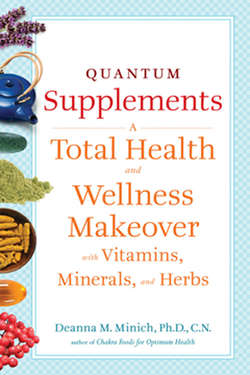Читать книгу Quantum Supplements - Deanna M. Minich - Страница 20
На сайте Литреса книга снята с продажи.
HERBS
ОглавлениеHerbs have been used since ancient times to cure a host of diseases. Available scientific research suggests that the inner workings of plants may be more complex than those of human beings. They are able to manufacture hundreds of compounds that help them survive in harsh environments, and these compounds have been proposed to be beneficial to the health of humans. Some constituents within a plant may be tied to its healing qualities, such as hypericin in St. John's wort for depression, or silymarin in milk thistle for liver disorders. You will notice that herbal dietary supplements are typically standardized to a certain percentage or amount of a particular compound that has known effects. In some cases, if you don't see this information on the label, you won't know how much of the active compounds you are taking, and, as a result, you could be getting a supplement that may not have the health benefit it is intended to have.
Many of us believe that since herbs have healing properties and are “natural,” they can be used indiscriminately. Let me caution you that this is not the case. Herbs are very potent substances and can deliver health benefits. In fact, several drugs are derived from plants. We must use herbs wisely and exercise caution when taking them, the same as we do when we use pharmaceuticals.
There are many methods of preparation to use herbs internally, in supplement form. Here are a few common ways:
Decoctions: The bark, berry, root, or seed of a plant is boiled to extract certain compounds; it may also be prepared as a tea.
Extracts: Herbs are pressed mechanically and then soaked in water or alcohol. The liquid they were soaked in is then allowed to evaporate. Extracts can also be made by applying heat to the plant matter.
Powders: An herb is ground into a powder, and then the powder is delivered in a capsule or tablet.
Tinctures: An herb is preserved in liquid. The liquid is usually alcohol, but may also be a nonalcohol form, like glycerin.
